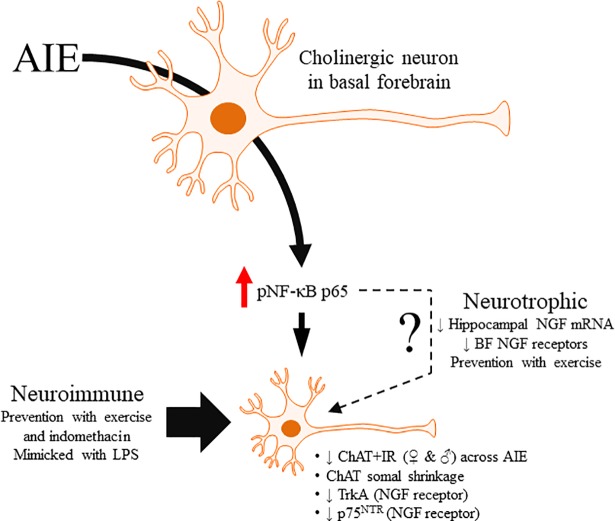Fig 8. Simplified schematic depicting the proposed mechanism underlying the adolescent intermittent ethanol (AIE)-induced loss of basal forebrain cholinergic neurons.
Adolescent binge ethanol exposure increases phosphorylation of the proinflammatory transcription factor nuclear factor kappa-light-chain-enhancer of activated B cells p65 (phosphorylated [pNF-κB p65]). This in turn results in the induction of neuroimmune signaling molecules that activates positive loops of amplification that persist into adulthood [54]. The present study suggests that this persistent proinflammatory neuroimmune activation contributes to the loss of basal forebrain cholinergic neurons that continues into adulthood. Indeed, exposure to either voluntary wheel running, which conveys immune modulatory effects, or treatment with the anti-inflammatory drug indomethacin prevents the loss of basal forebrain cholinergic neurons by preventing the AIE-induced increase of pNF-κB p65. Moreover, treatment with the endotoxin lipopolysaccharide (LPS) mimicked the AIE-induced loss of cholinergic neurons while increasing expression of pNF-κB p65. While these data implicate the neuroimmune system in the persistent AIE-induced loss basal forebrain cholinergic neurons, the precise mechanism remains to be fully elucidated. Interestingly, LPS treatment has previously been found to decrease hippocampal expression of the neurotrophin nerve growth factor (NGF) [55, 56], which is critical for basal forebrain cholinergic maintenance and survival [10]. Thus, AIE-induced neuroimmune activation may disrupt NGF inputs to the basal forebrain culminating in the persistent loss of cholinergic neurons. Thus, these data provide support for a neuroimmune mechanism underlying the AIE-induced loss of basal forebrain cholinergic neurons.

